Photo: George Pimentel/WireImage
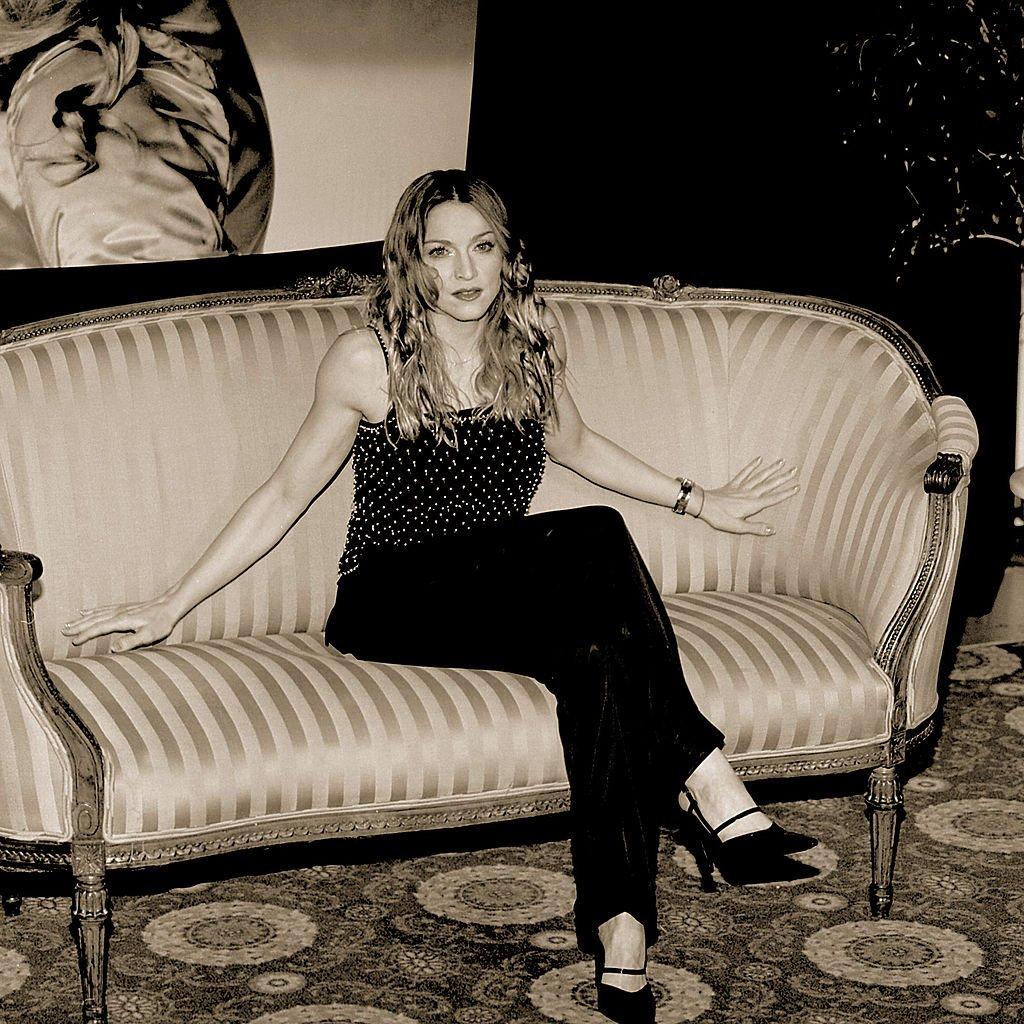
Madonna in 2000
news
Music Makes The People Come Together: 20 Years Of Madonna's 'Music'
Released in 2000, the Queen of Pop's five-time GRAMMY-nominated album is the work of an artist who has plenty to say, but nothing to prove—a reminder of a less complicated time and a blueprint for our future
In the year 2000, America was sharply divided. A new generation of singers had lip-synced and danced its way to the top of the charts and the front of the pop culture proscenium with material Auto-Tuned to Pro Tools perfection. The (mostly rock) music establishment loudly decried the new pop as artifice and asserted the integrity of music made with analog instruments.
At the time, assessing the validity of popular music loomed larger than the growing threat of MP3 downloads that would eventually upend the entire record industry. Madonna had been through these kinds of polemics before, herself a frequent subject of musical legitimacy debates. But nearly two decades into her career, she had seemed to quiet her most ardent critics.
Her seventh studio album, 1998's Ray of Light, had been the best-reviewed record of her career thus far, earning five GRAMMY nominations and winning three, including Best Pop Album, in 1999. Along with a pair of soundtrack singles, the album had maintained Madonna's presence on radio into the summer of 2000. On MTV's "Total Request Live," her videos played between those from upstart stars half her age, many of whom would cite her as an inspiration. In a contentious cultural landscape, Madonna occupied the highly coveted overlapping space of critical credibility and popular viability.
Ray of Light struck gold by embracing Björk- and Massive Attack-esque electronica, thanks largely to the work of the album's primary producer, William Orbit. However, as a genre, electronica had yet to live up to predictions that it would dominate the U.S. as it had Europe. In combination with Madonna's reputation for reinvention, this only drove expectations higher for how she would follow her latest career highpoint.
<style>.embed-container { position: relative; padding-bottom: 56.25%; height: 0; overflow: hidden; max-width: 100%; } .embed-container iframe, .embed-container object, .embed-container embed { position: absolute; top: 0; left: 0; width: 100%; height: 100%; }</style><div class='embed-container'><iframe src='https://www.youtube.com/embed/Sdz2oW0NMFk' frameborder='0' allowfullscreen></iframe></div>
"Music," the lead single and title track of her eighth studio album, struck the airwaves like an intergalactic robot in August 2000, heralding a new sound for Madonna and the arrival of 21st-century pop music. With its digitally modified instruments, arpeggiated synths and a chorus Madonna says was inspired by the crowd at a Sting concert, "Music" combined elements of electronic and analog to create an anthem of unity on the dance floor. The Jonas Åkerlund-directed music video—featuring a pre-Borat Sacha Baron Cohen as his character, Ali G—seemed to skewer the decadence of late-'90s hip-hop bling while also revelling in it. We see a pimp-suited Madonna getting into the groove, relishing a night at the strip club with her girls and fending off creeps like a boss, all filmed while she was five and a half months pregnant.
On the strength of its lead single, Music released in the U.S. on September 19, 2000, via Madonna's Maverick imprint under Warner Bros. and opened at No. 1 on the Billboard 200, her highest-charting album in over a decade. Although critics didn't gush over Music with quite the same enthusiasm as they had its predecessor, the album moved millions of physical copies in its first few weeks, eventually going on to garner triple-platinum certification in the U.S. It ultimately earned five total GRAMMY nominations, including Best Pop Vocal Album and Record Of The Year for "Music" in 2001 and Best Short Form Music Video for "Don't Tell Me" in 2002. (Former Maverick Records art director and designer Kevin Reagan, who designed the album, won for Best Recording Package in 2001.)
<style>.embed-container { position: relative; padding-bottom: 56.25%; height: 0; overflow: hidden; max-width: 100%; } .embed-container iframe, .embed-container object, .embed-container embed { position: absolute; top: 0; left: 0; width: 100%; height: 100%; }</style><div class='embed-container'><iframe src='https://www.youtube.com/embed/qYwgG2oyUbA' frameborder='0' allowfullscreen></iframe></div>
In an effort to introduce the Queen of Pop to a new generation of fans, the album's promo campaign combined the traditional (a terrestrial radio premiere, a Rolling Stone cover story) with the new (an AOL listening party/live chat, a livestreamed club performance) over a timeline that seems enviably long by today's standards. Comparisons to more junior pop artists on the charts and airwaves swirled around her, but Madonna avoided miring herself in the muck.
Instead, for an exclusive performance at New York City's 3000-capacity Roseland Ballroom that November, Madonna took the stage wearing a Dolce & Gabbana-designed T-shirt emblazoned with the name Britney Spears. For her performance at MTV's European Music Awards later that month, she wore a similar shirt that said Kylie Minogue. "It's my celebration of other girls in pop music," she said backstage at the EMAs, praising the younger women before adding, somewhat cheekily, "I think they're the cutest."
Read: Behind The Board: Tracy Young Breaks Down How She Approaches A Remix
Such spontaneous statements of support and admiration are almost boringly common now, but in an era when pop music had been denied entry into the credibility club, the moment held more weight. Though the press loved to pit female pop stars against each other at the turn of the century as much as it does now, musically, there wasn't much rivalry between them. With Spears still steeped in the sounds of Swedish pop on Oops!… I Did It Again and Minogue diving into disco on Light Years, Madonna had crafted a sound of her own on Music.
While Orbit returned for several tracks on the album, the majority of Music was co-helmed by the relatively unknown French producer Mirwais Ahmadzaï. Like his contemporaries in the French touch electronic scene (Daft Punk, Air, Rinôçérôse), Mirwais was unabashed in his affection for American music of the '70s, including the funk and R&B influences of house. Those influences, paired with his proficiency in production, worked well with Madonna's penchant for pop hooks, resulting in an LP whose sonic textures included space-age fills, guitar-washed in computerizing effects, and vocals that alternate between alien and intimate.
Music's second track, the distorted and ravey fan favorite "Impressive Instant," is a high-BPM ode to a trippy first encounter that sounded then like nothing anyone had heard before—20 years later, it still does. On the opposite end of the spectrum, closing track "Gone" is a stark and straightforward crooner made glorious by the fortitude of Madonna's vocals, selectively layered with exacting control.
<style>.embed-container { position: relative; padding-bottom: 56.25%; height: 0; overflow: hidden; max-width: 100%; } .embed-container iframe, .embed-container object, .embed-container embed { position: absolute; top: 0; left: 0; width: 100%; height: 100%; }</style><div class='embed-container'><iframe src='https://www.youtube.com/embed/gLFWRDsx5AI' frameborder='0' allowfullscreen></iframe></div>
As an album, Music is a masterclass in juxtaposition that disguises some of its strangest elements in familiarity. Where futuristic production might distract, it's moderated by traditional instrumentation. This plays out most noticeably on second single, "Don't Tell Me." It's hard to hear the track's opening guitar riff without thinking of the album's disco cowboy visual aesthetic come to life in the Jean-Baptiste Mondino-directed video. The record soundtracking the sparkly western shirts and synchronized line dancing is downright audacious in how it interweaves acoustic guitar—played by Madonna herself—with midtempo dance beats, cushioned by country strings, all building to a crescendo in the final chorus. "Don't Tell Me" so effortlessly realizes the misbegotten '90s vision of folktronica that it sounds just as fresh today as it did in 2000.
As a mainstay of '90s soft rock radio, Madonna was no stranger to love songs. Given the magnitude of her celebrity, the details of her personal life were bound to color how listeners heard Music's more personal lyrics. Two decades later, the declarations of love on "I Deserve It," presumably intended for then-boyfriend, husband-to-be Guy Ritchie, feel just as authentic now, long after their relationship ended. In contrast to the frequent unironic materialism expressed by today's celebrity pop stars, Music excelled at showing the former "Material Girl" in self-reflection. Its genius is how that introspection comes across as relatable and real, even when sung to highly synthesized beats by one of the biggest stars in the world.
For all its ebullience, at only 10 tracks and clocking in just under 45 minutes, Music is a model of restraint. It's the work of an artist who has plenty to say, but nothing to prove. And while her status as an innovator is deserved, Music shows how Madonna is an even better interpreter, fluent in musical languages across genres and capable of hewing them to her vision.
Although Music faces forward to the new century, its unencumbered joyfulness is a bittersweet vestige of the uncomplicated '90s. When she wielded her axe on stage for the kickoff of the Drowned World Tour in June 2001, it was a subtle statement of sorts, expressing Madonna's own defiance of music rules: She could be both rock and pop, analog and digital, acoustic and electronic. But by the time that tour wrapped in Los Angeles on September 15, 2001, nobody cared about that debate anymore.
While she had deftly eschewed the petty cultural battles between genres and generations, the world had changed dramatically in the first year since the release of Music. The message would be muddled in years to come, but in that moment, Madonna was uniquely prepared to be a voice for unity with one simple yet inarguable statement: Music makes the people come together.
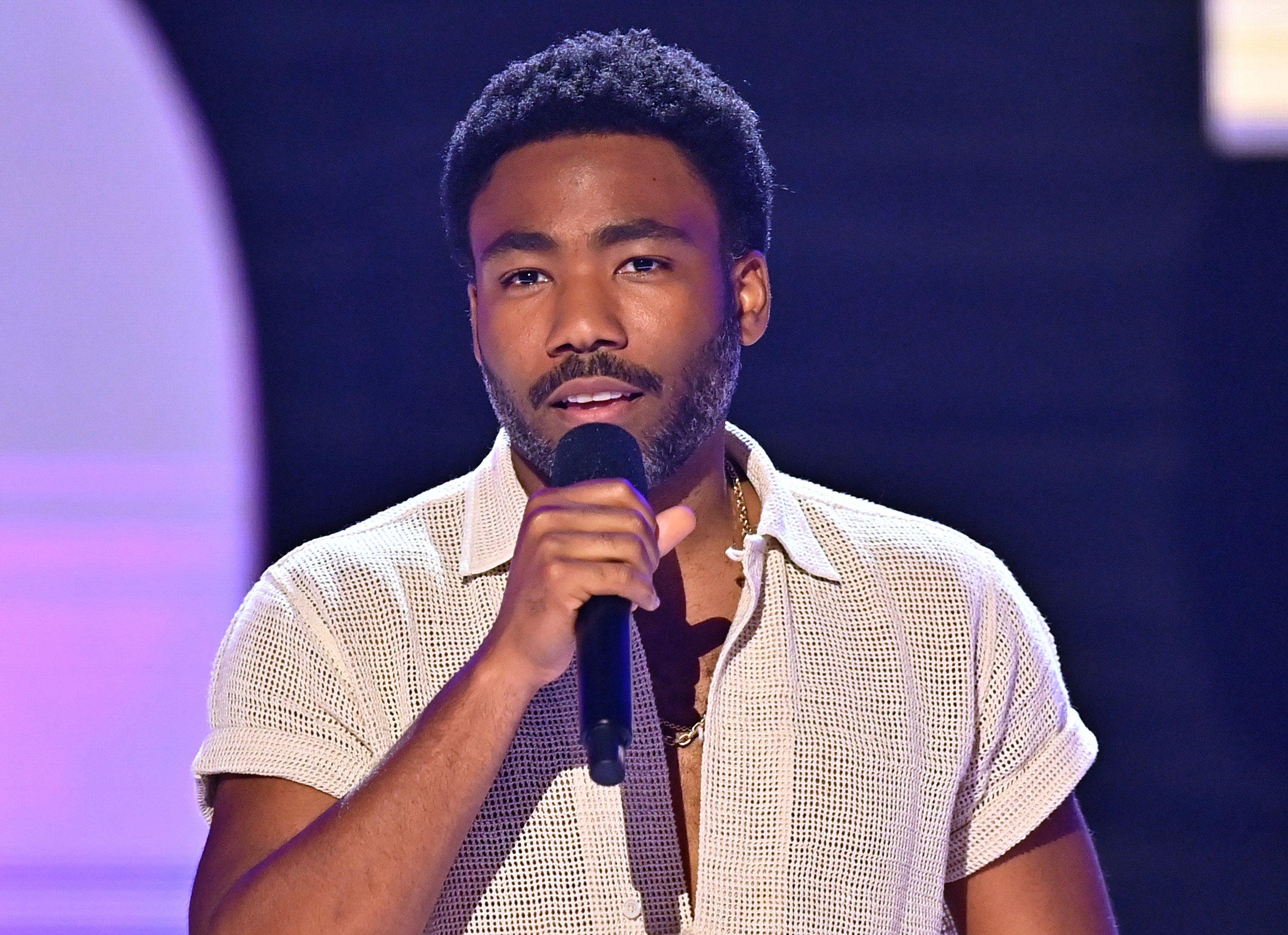
Photo: Paras Griffin/Getty Images for BET
list
New Music Friday: Listen To New Releases From Childish Gambino, JT, Rauw Alejandro & More
With July being more than halfway through, take a look at the new tracks, albums, and collaborations from Alessia Cara, Joe Jonas and more that dropped on July 19.
This summer continues to dazzle us with an electrifying array of music, with new releases arriving from Jimin (MUSE), Ivan Cornejo (MIRADA), Koe Wetzel (9 Lives), Denzel Curry (King Of The Mischievous South Vol. 2), and Adam Lambert (Afters), and many more this week. From eagerly awaited comebacks to iconic collaborations, July 19 has an abundance of new music to offer across all genres.
As you continue shaping up your summer playlists, be sure to check out the following 11 new songs and projects.
JT — 'City Cinderella'
Following the release of "The City Cinderella Documentary," which chronicles JT's inspiring journey from overcoming challenging circumstances to embarking on a solo career, the rapper unveils her highly-anticipated 16-track mixtape, City Cinderella. The project is a showcase of talent and growth, featuring powerhouse collaborations with DJ Khaled and Jeezy, the latter of whom features on a remix of her hit "OKAY."
City Cinderella is JT's first project since parting ways with her former City Girls cohort, Yung Miami. Speaking to Paper Magazine about her new venture, JT explained that the inspiration for the project was simple: "I just wanted to authentically be myself and make music."
Rauw Alejandro — "DEJAME ENTRAR"
Puerto Rican star Rauw Alejandro has been a song machine since his Sony Latin/Demars Entertainment debut with 2019's Trap Cake, Vol. 1. He'll be releasing his fifth album in five years later this year — and judging by his latest release, it may be his sexiest yet.
"DEJAME ENTRAR" sees Alejandro getting close to a woman who once was just a crush, but has now turned into his latest love affair. The singer debuted the sultry, pulsing track with a smooth performance on "Today" on July 12; one week later, the song's official release also included the official video, which co-stars actor Adrian Brody.
Though Alejandro hasn't revealed a release date for his next project, he teased on "Today" that it will hopefully be done "soon." "These songs [are] too good to be inside the studio," he said.
Childish Gambino — 'Bando Stone & the New World'
Just two months after re-releasing his 2020 project, 3.15.20, under the new title Atavista, Donald Glover is back with another Childish Gambino album, Bando Stone & the New World. The LP features stylistic musical choices that parallel Gambino's past albums, including 2011's Camp, 2013's Because the Internet, and 2016's "Awaken, My Love!," as well as features from Amaarae and Jorja Smith, Flo Milli, Fousheé, and Yeat.
As Glover revealed in April, Bando Stone & the New World will be his last album under the Childish Gambino moniker. But he's going out with a bang: along with a massive world tour, Bando Stone & the New World is accompanied by a sci-fi film titled Bando.
According to a recent interview the New York Times, it seems Glover feels a sense of completion with the project, too. "Success to me is, honestly, being able to put out a wide-scale album that I would listen to," he said. "For this album, I really wanted to be able to play big rooms and have big, anthemic songs that fill those rooms, so that people feel a sense of togetherness."
'Twisters: The Album'
Nearly 30 years after the 1996 release of Twister, the blockbuster finally gets a sequel with the highly anticipated Twisters — and an equally exciting accompanying soundtrack. The sprawling Twisters: The Album features some of the biggest names in country music today, with tracks from Luke Combs, Lainey Wilson, Jelly Roll, and many more.
Combs was the first to tease a taste of the soundtrack with his gritty, uptempo tune "Ain't No Love In Oklahoma," which was released alongside a music video that featured clips from the movie. Scenes from the film can also be seen in the clip for Jelly Roll's "Dead End Road," which arrived the day before the album's release.
But there's so much more to discover across the soundtracks 29 songs, from Megan Moroney's "Never Left Me" to Charley Crocket's "(Ghost) Riders In The Sky." And though the track list is stacked with country stars, there's a few gems to enjoy by hitmakers from other genres, too, including Benson Boone ("Death Wish Love") and Leon Bridges ("Chrome Cowgirl").
Alessia Cara — "Dead Man"
It's been two years since we last heard from Alessia Cara, but she's ready to begin her next chapter. The GRAMMY winner unveils "Dead Man," the lead single from her forthcoming fourth album — and if the kiss-off track is any indication, Cara's in her fearless era.
Backed by crisp drums and harmonious saxophones, "Dead Man" is an edgy ode to someone she's cutting off because he's no longer serving her. "If you really care, then why am I feeling you just slipping through my hands?," she questions in the chorus. "If you're really there, then why can I walk right through ya?/ Talkin' to a dead man."
James Bay feat. Noah Kahan & The Lumineers — "Up All Night"
In the folk-pop collaboration that dreams are made of, James Bay teams up with longtime friend Noah Kahan and genre giants The Lumineers for "Up All Night." The track boasts a vibrant instrumental layered beneath the harmonious blend of each artists' vocals — a perfect soundtrack for warm, starry summer nights.
The week "Up All Night" arrives also marks a full-circle tour moment for Kahan and Bay. Five years after Kahan first opened for Bay on the "Let It Go" singer's Electric Light Tour in 2019, Bay is now opening for Kahan — at New York City's Madison Square Garden and Boston's Fenway Park, no less — on the We'll All Be Here Forever Tour.
Sueco — 'Attempted Lover'
After four years and two projects with Atlantic Records, Sueco unveils his first independently released studio album, Attempted Lover. Across 12 tracks, the L.A. native delves into the complexities of love and relationships, while navigating the tangled emotions that accompany these themes.
Sueco set the stage back in March with the project's lead single, "Drama Queen" — a raw, high-energy track that drew in both new and loyal listeners. He soon followed up with "Mulholland Drive," a stripped-down acoustic gem, showcasing the impressive range of musical styles that Attempted Lover has to offer.
In celebration of the release, Sueco will embark on the Attempted Lover Tour in Sept. 13, kicking things off in Ft. Lauderdale, Florida, and hitting 32 cities in North America until Nov. 2.
KALEO — "USA Today"
During a short break from their Payback Tour, KALEO is back with new music — and making a statement and an impact with their latest release.
The rock band deliver the emotionally charged "USA Today," a reflection on gun violence in America. Though frontman JJ Julius Son first wrote the track in 2019 with Shawn Everett and Eddie Spear, he felt compelled to release the track after an innocent bystander was killed during the attempted assassination of Donald Trump on July 13.
"So here we are/ Fighting for america/ Fighting for a new day/ Trying hard to change/ USA today," Son sings over gritty guitar riffs and dark synths. KALEO invites listeners to join the movement, pledging to donate a portion of the proceeds from the song to the gun violence advocacy group Everytown.
"USA Today" is the second track KALEO released from their forthcoming fourth album, which is due later this year; it follows the acoustic lead single, "Lonely Cowboy."
Avery Anna — 'Breakup Over Breakfast'
After being named an Artist to Watch by Amazon Music, Pandora, Spotify, and CMT in 2023, country newcomer Avery Anna further displays her promise and prowess with her debut album, Breakup Over Breakfast. The Arizona native co-wrote all 17 tracks on the project, including standout track "girl next door," a powerful ballad that puts Anna's golden vocals on display.
"These songs mean the world to me. It's a little bit of rock, country, acoustic, pop, and everything personal," the singer/songwriter wrote in an Instagram post. "I really wanted to give you guys an album that you can confide in. I carefully chose the songs and track listing, and creating it was an adrenaline rush / a relief all at the same time."
Role Model — 'Kansas Anymore'
With his 2022 debut album, Rx, Role Model dove deeply into themes of love. Two years later, the rising bedroom pop star offers a different take on that same topic, grieving the very relationship that inspired Rx with Kansas Anymore.
Along with offering a different take on love and relationships, Role Model's latest effort is also inspired by his longing for his native state of Maine. Drawing inspiration from artists like Zach Bryan, the War on Drugs and Caamp, Kansas Anymore chronicles Role Model journeys back home, attempting to fill the void created by leaving his East Coast roots for California. The project represents a mature step forward, navigating the rollercoaster of heartbreak and homesickness — and moving listeners in the process.
Joe Jonas — "Work It Out"
Since releasing his first solo album, Fastlife, in 2011, Joe Jonas has been plenty busy, from landing a megahit with his pop-rock group DNCE to bringing back the Jonas Brothers with his siblings Nick and Kevin. Thirteen years later, the singer makes a solo comeback with "Work It Out," the bouncy lead single from his sophomore solo album, Music for People Who Believe in Love, due Oct. 18.
"This album is a celebration of gratitude, hope, and love. These songs reflect on my life from a bird's-eye-view acknowledging the many blessings around me," Jonas shared on Instagram, referencing both his own experiences as an individual and as a recent father of two. "I hope it brings you as much joy as it brought me creating it."
Latest News & Exclusive Videos
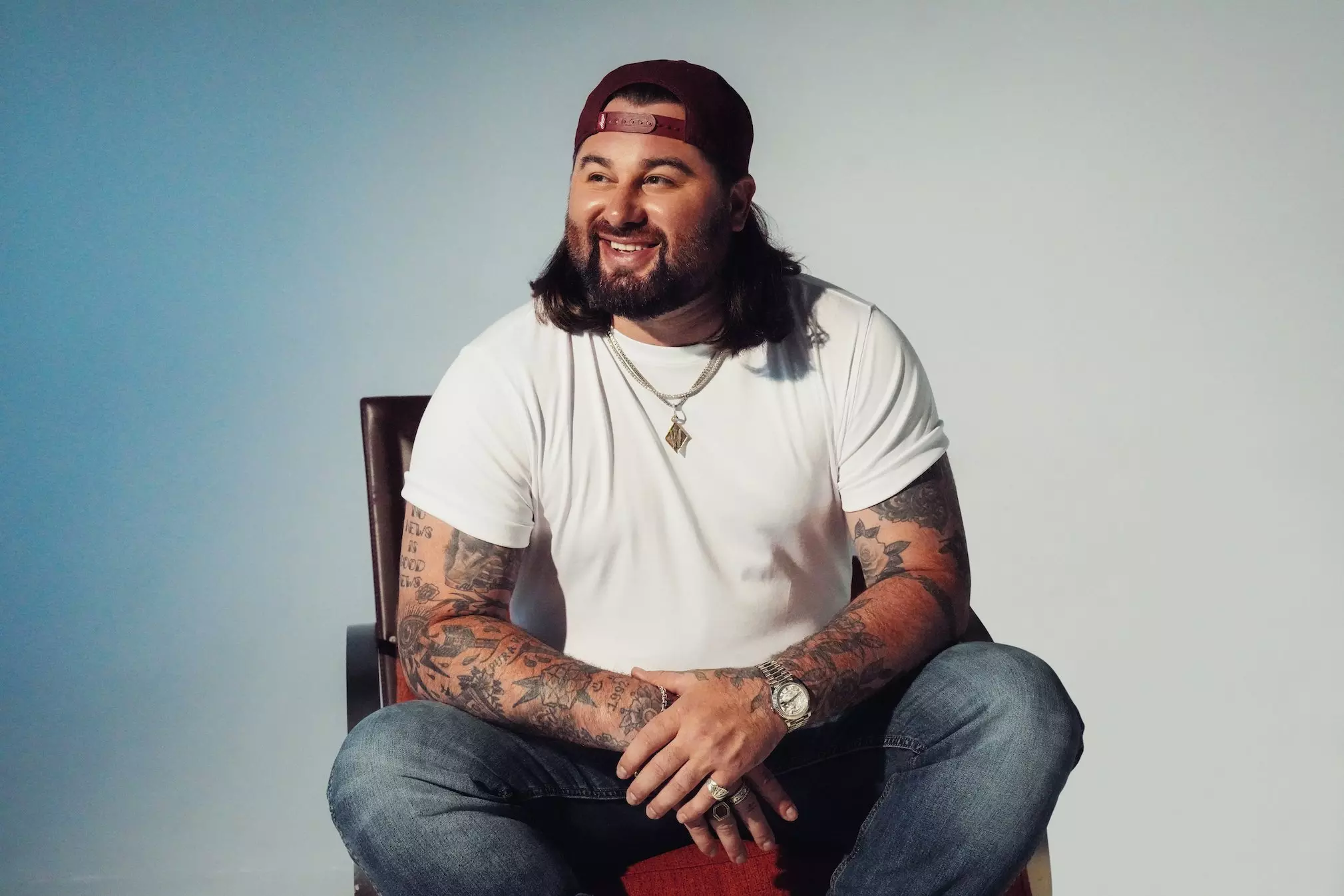
Koe Wetzel On How New Album '9 Lives' Helped Him Tap Into His Feelings
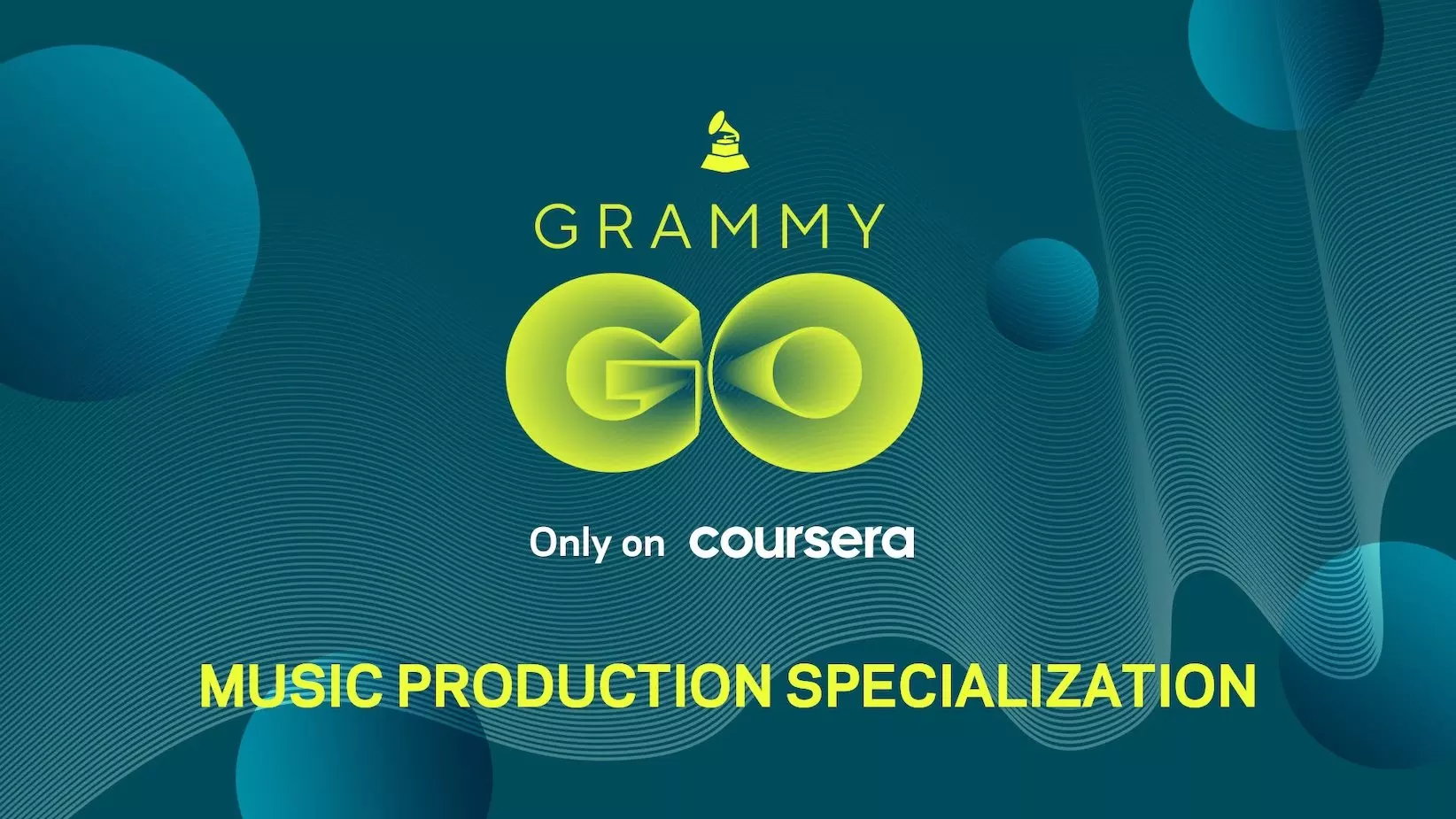
The New GRAMMY GO Music Production Course Is Now Open: Featuring GRAMMY Winners Hit-Boy, CIRKUT, Judith Sherman & More

Ayoni Performs "Bitter In Love"
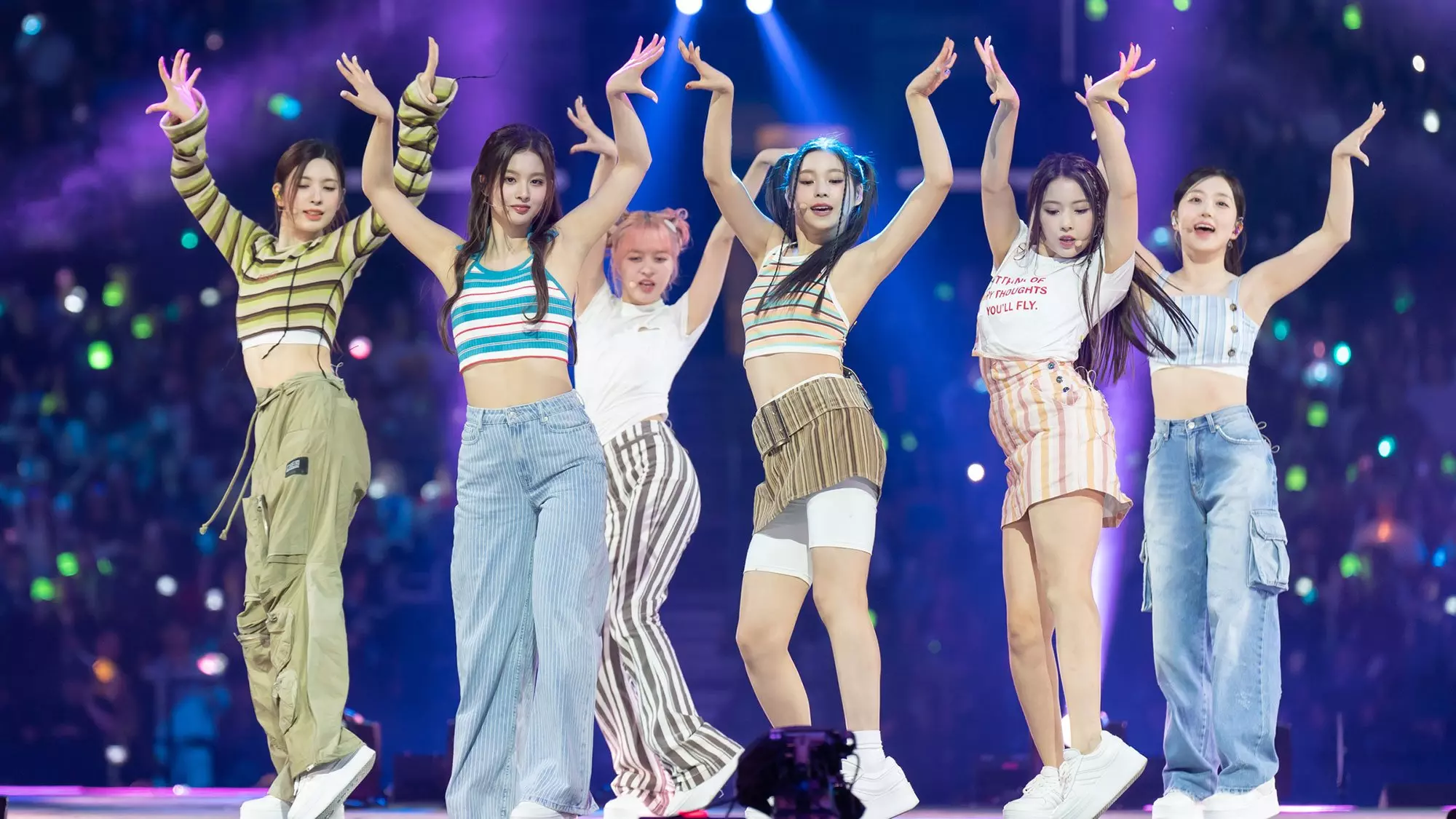
KCON L.A. 2024 Returns: Get Ready With This Playlist Featuring NCT 127, Zerobaseone, ENHYPEN, Zico & More
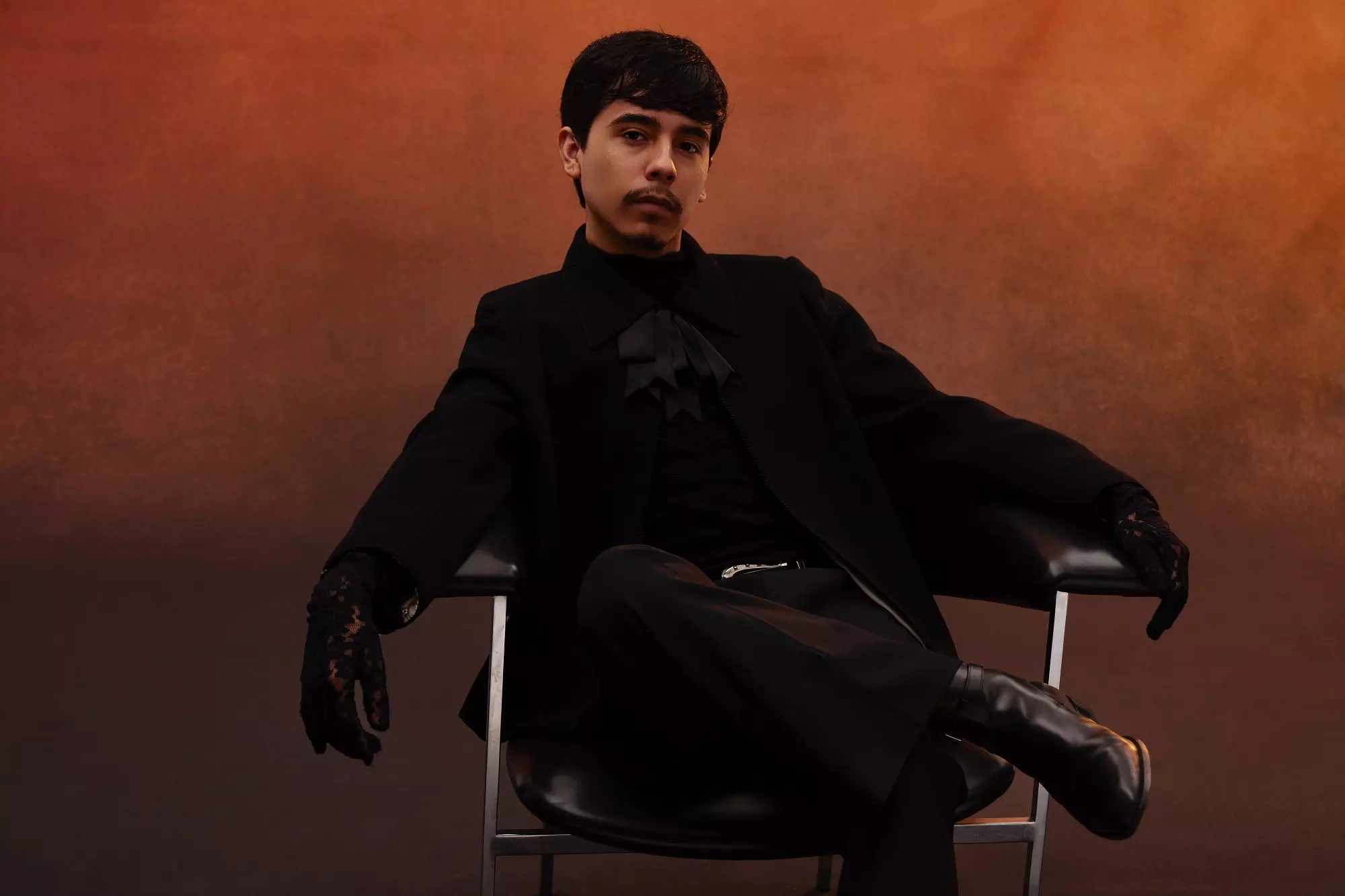
On 'Mirada,' Ivan Cornejo Redefines The Sound Of Sad Sierreño And Helps Fans Heal Through Music

Photo: David O’Donohue
list
Meet Amy Allen, The Hitmaking Singer/Songwriter Behind Sabrina Carpenter's "Please Please Please" & More Pop Gems
Amy Allen has penned hits for stars like Halsey, Harry Styles, and Tate McRae, including two recent smashes from Sabrina Carpenter. As she embarks on her own artist journey, learn more about the GRAMMY-winner's already dazzling career.
Some artists are lucky enough to have a moment: a song of the summer, a radio hit, or a point at which their song dominates the pop conversation. Before even launching her own singing career, Amy Allen has done just that — multiple times.
In 2022, the Maine native contributed to hit songs from Harry Styles, Lizzo, Charli XCX, and King Princess; at the 2023 GRAMMYs, she was one of the inaugural nominees for Songwriter Of The Year, Non-Classical, and celebrated an Album Of The Year win alongside Styles thanks to her work on Harry's House. And as of press time, two songs she co-wrote with Sabrina Carpenter are in the top 10 of the Billboard Hot 100 chart: "Espresso" and "Please Please Please," the latter of which hit No. 1.
When you have a resume and catalog as impressive as Allen's, it's hard not to get stuck in a run of highlights — but Allen's writing style is so full of remarkable emotional depth and inevitable hooks that her life and career deserves further exploration. After binging on classic rock and performing in rock and bluegrass bands in her youth, Allen began writing songs for others in the mid 2010s and has only continued to expand her impact on audiences and collaborators alike.
"Amy is a once-in-a-lifetime writer and friend — it all comes to her very naturally and effortlessly," Carpenter recently told Variety. "She's super versatile: She can wear any hat and yet it still feels authentic. I've learned a lot from her and admire what an incredible collaborator she is."
Along the way, Allen has continued honing her skills as an artist in her own right, releasing a handful of EPs and singles since 2015, initially under the name Amy and the Engine. But on Sept. 6, she's ready to fully introduce herself with her debut album — fittingly titled Amy Allen.
Just after Allen celebrated her latest No. 1 and released her newest single, "even forever," GRAMMY.com rounded up the key details you need to know about the singer/songwriter's diverse musical background, from her advocacy for female creators to seeing Harry Styles sing a song she co-wrote to a massive audience.
Her Origin Story Features A Lot Of Car Talk
Allen's early musical growth relied on four-wheeled vehicles to drive the plot forward — in many different forms. Growing up in rural Maine meant long car rides to for school and family outings, which in turn meant a lot of time with the radio.
"My dad is the biggest classic rock fan, so since I was little, I spent hours every day listening to music in the car with him and my sisters," she told Variety earlier this year.
When it came time for one of her sisters to start a band, the elder Allen named it No U-Turn, setting the theme. When the band needed a new bassist, Amy took up the low end at just 8 years old, learning classic songs from the likes of Tom Petty and Rolling Stones. The band started collecting opening spots at a bar in Portland, Maine, and lasted until Allen was in high school and her sisters had left for college. In addition, she started playing in a bluegrass band called Jerks of Grass alongside her high school guitar teacher.
Eventually, Allen thought about moving on and changing course. "I went to nursing school at Boston College for two years, and within a month of getting there I was like, 'I made a big mistake,'" she continued. After moving over to the prestigious Berklee School of Music, Allen started a new project, yet again turning to vehicular terminology: Amy and the Engine, who would go on to open for the likes of Vance Joy and Kacey Musgraves. The project's timeless indie pop charm shone brightly on singles like "Last Forever" and the 2017 EP Get Me Outta Here!, fusing references ranging from the Cranberries to the Cure.
She's A Major Champion For Women In Music
Back in 2021, Allen pondered whether it was time to carve up one of America's most prominent monuments. "Can you imagine tits on Mount Rushmore/ And Ruth Bader Ginsburg from dynamite sticks?" she sang on "A Woman's World," a highlight from her 2021 solo EP AWW!. The song backs off from that explicit ask, but the low-slung waltz of ghostly piano and gentle acoustic guitar still subversively slices at traditional gender roles and power dynamics.
And while the track may focus its first verse on the Notorious RBG, Allen designed it as a more approachable anthem. "I felt very proud of that song. And it's something that I love to play live, because I think that it's nice as a woman to give that moment to other women in the audience where I see them," she told The Line of Best Fit upon the EP's release.
Her solo work sits in a long line of female pop and rock stars looking to lift others up — with Allen's list of influences including everyone from the Carpenters and Pat Benatar to No Doubt, Hole, and Siouxsie and the Banshees. But she's also aware of the shortcomings in the industry when it comes to behind-the-scenes matters, with female songwriters representing a disproportionately small percentage of the industry and often at lower revenue than their male counterparts.
"It's important to have more women writing and performing so that younger girls can be hearing that and really connecting with that and resonating with that, and then being inspired to do that themselves," she continued. "I'm really excited to hear what the next generation of singer songwriters creates, and I want to do my part in making sure that they're able to."
She Went Full Circle With Selena Gomez
Allen's emotionally salient and indelibly quirky songwriting with the Engine caught the attention of more than just adoring fans. While on a tour stop in New York, she connected with Scott Harris, a songwriter who has worked with the likes of Shawn Mendes, Camila Cabello, Niall Horan, and Meghan Trainor; when Allen eventually moved to New York, she would take on some of Harris' writing sessions when he was in Los Angeles. One of those sessions spawned the first song she'd place with another artist: Selena Gomez's "Back To You," which ended up on the soundtrack for the second season of Netflix's teen drama "13 Reasons Why" in 2018.
"I grew up listening to Selena Gomez, and I know that she's going to be a pop icon forever," Allen told People in 2020. "She's awesome. I was so psyched…It definitely propelled my career in the pop writing field further."
Two years later, she would re-team with Gomez for "My Mind & Me," a single released alongside a documentary film of the same title following the impact of the star's diagnoses with lupus and bipolar disorder on her career. The single similarly offers an openhearted, empathetic look at big mental health struggles, this time in the form of a sweeping, cathartic power ballad driven by stumbling syllables and stair-step piano.
The track was shortlisted for Best Original Song at the 2023 Academy Awards, charted in more than a dozen countries, and, perhaps most importantly, seemed to have made quite the connection with Gomez. "Honestly, it was therapeutic for me," the pop star and actress told Variety in 2022. "I felt super connected to what I was singing and what I was saying."
She Loves Seeing Her Collaborators Live
Songwriters often wind up hidden behind the scenes, unable to really gather the impact that their artistic expression is making on others. But thankfully, Allen has been able to catch a peek in on the arena-sized reactions for some of her biggest collaborators.
One of Allen's most-played co-writes is "Adore You," a highlight from Harry Styles' 2019 album, Fine Line, which has nearly 1.7 billion streams on Spotify alone as of press time. The buoyant, slippery burst of Fleetwood Mac-indebted funk pop embodies the start of an infatuation, and fans similarly felt under the song's spell. And Allen finally got to see that feeling come to life at Styles' album release show at the Kia Forum in Los Angeles in 2019.
"Watching Harry, I was really nervous because the album had only been out for a couple days and I wasn't sure if anybody would know that song," Allen told Variety in 2020. She also noted that the song was a hard turn from more heartbroken tracks she'd written for the likes of Halsey. "'Adore You' was my first feel-good song, so I'm psyched about that," she added.
Though not in person, Allen got a similar bolt of joy when she was able to watch Lizzo perform Styles' track for BBC Radio 1 in 2020. "I idolize Lizzo," Allen continued. "It really just goes to show that the right song can be performed by many different people."
Little did Allen know that she'd get to celebrate a GRAMMY nomination and win alongside Lizzo and Styles, respectively, just three years later. She co-wrote "If You Love Me" from the flute-jamming pop star's 2022 record Special, which was nominated for Album Of The Year at the 2023 GRAMMYs, where Styles' Harry's House (which featured Allen's co-write "Matilda") won the coveted honor.
She Shapeshifts Her Songwriting For Each Artist
When a songwriter has to split their tracks up between multiple different artists, it might be difficult to ensure that each track sounds appropriately fitted to each performer. For Allen, it all comes down to knowing when to follow the rules and when to break them.
"Sometimes we'll be writing and someone will say, 'It should go straight to the chorus here,' and in my brain I'm like, 'But we need a pre-chorus!' — you know, following the ABCs of songwriting," she told Variety. "But I've really been trying over the last couple of years to deconstruct some of those — that you don't need to pull out all the tricks all the time. It can actually make the song more interesting."
In fact, it might come down to what she prioritizes when sitting down to write, rather than which rules to follow. While walking the red carpet for the 2021 Ivor Novello Awards for songwriting and composition, Allen explained her perspective on songwriting formulas to PRS For Music: "When I'm writing for myself, I usually start with the verse and move my way through, and lots of other times when I'm writing with another artist I make sure the chorus is bulletproof."
The GRAMMYs Are Helping Change Her Family's Perspective On Her Career
Allen earned her first GRAMMY nomination in 2022 for her work on Justin Bieber's Justice, but her most meaningful nomination came a year later for Songwriter Of The Year, Non-Classical at the 65th Annual Awards ceremony (alongside Nija Charles, The-Dream, Laura Veltz, and Tobias Jesso, Jr.). While Allen had a hard time contextualizing the recognition, it helped her loved ones better understand the impact of her career.
"I'm just so grateful…Even my closest family and friends, they're like, 'I've listened to this artist for so long, or I listened to this song on the radio, and I had no idea there was a team that helped make this happen,'" she told VERSED: The ASCAP Podcast in 2022. "People like me growing up in small towns, we don't know that being a songwriter for a career is an option… I watched the GRAMMYs when I was growing up, and if I had known that people were making great careers, I would've gotten on the track a lot earlier."
Though the inaugural award ultimately went to Jesso, Jr., Allen seems to agree that he's deserving of the honor — he's one of her collaborators on her upcoming album.
Maine Will Always Be Home — and An Inspiration
For those who haven't been to Maine, a quick look at Allen's social media will reveal just how stunning the American Northeast can be. Among TikToks promoting her music, Allen almost inevitably drops in a clip displaying the expansive natural beauty of her home state — whether she's on a rope swing over a dazzlingly blue pool of water, or dropping a front spin while skating on the ice, or watching the massive waves from her family home.
"POV: ur back home in maine and wondering why u ever left," she plastered over one particularly stunning TikTok montage of a dazzling day swimming amongst waterfalls. The only thing as beautiful as the scenery is the music behind it is an unreleased track about missing home — proof that Maine will always be part of her, and that she clearly made the correct choice in following her songwriting dreams.
Latest News & Exclusive Videos

Koe Wetzel On How New Album '9 Lives' Helped Him Tap Into His Feelings

The New GRAMMY GO Music Production Course Is Now Open: Featuring GRAMMY Winners Hit-Boy, CIRKUT, Judith Sherman & More

Ayoni Performs "Bitter In Love"

KCON L.A. 2024 Returns: Get Ready With This Playlist Featuring NCT 127, Zerobaseone, ENHYPEN, Zico & More

On 'Mirada,' Ivan Cornejo Redefines The Sound Of Sad Sierreño And Helps Fans Heal Through Music
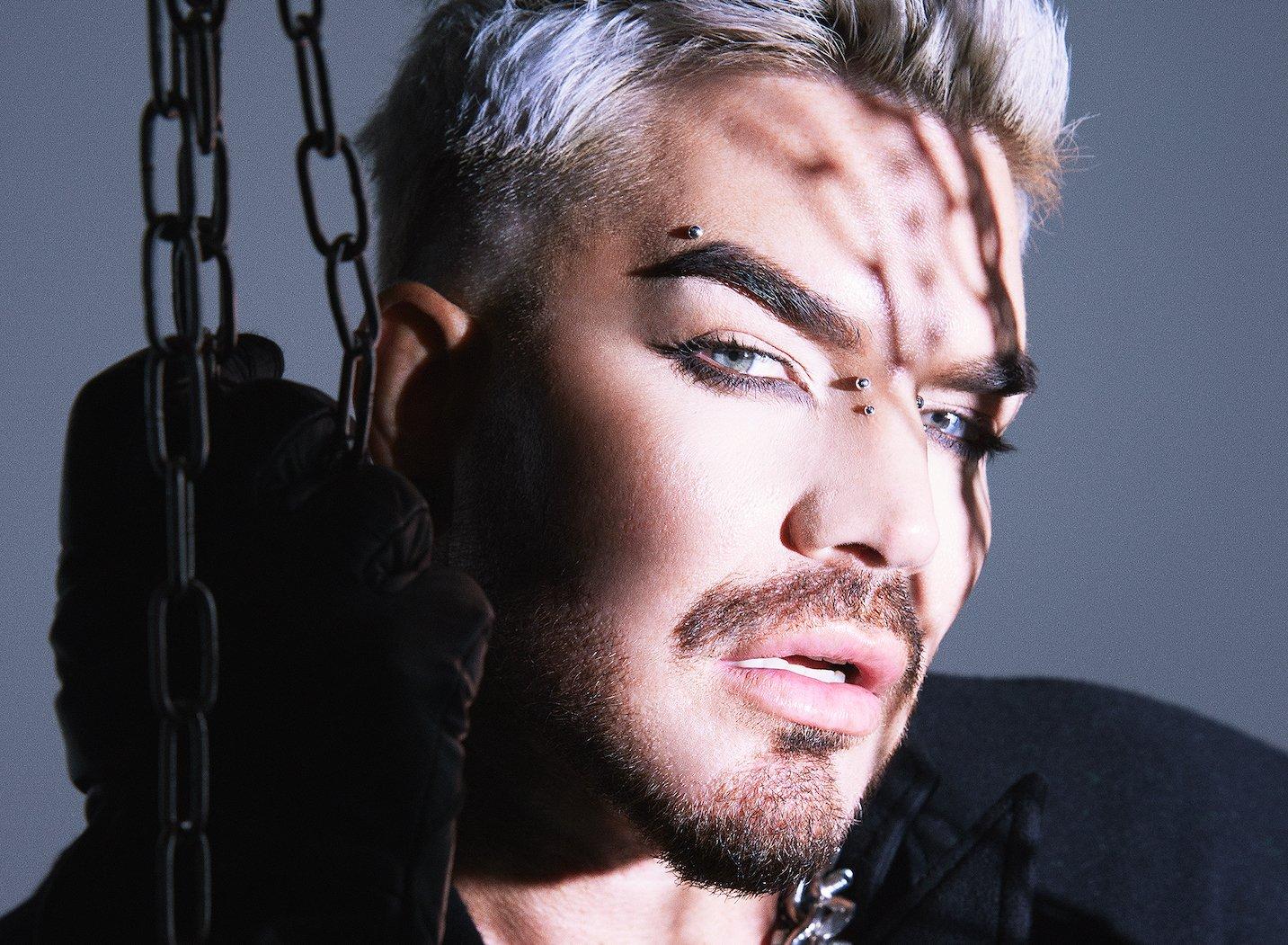
Photo: Brian Ziff
interview
Inside Adam Lambert's 'Afters': How '90s House, Clubbing & Lots Of Sex Inspired His Most "Liberated" Music Yet
With his latest project, Adam Lambert leans into his sexuality and queer nightlife culture like never before. The singer details the uninhibited inspirations behind songs like "WET DREAM" and "LUBE."
Fifteen years into his career, Adam Lambert is primed for the after-party. In fact, the pop star has made an entire EP for the occasion — fittingly titled Afters.
The six-track project, which drops July 19 via More Is More Records, finds the big-voiced singer trading the expansive covers of his last LP, 2023's High Drama, for a no-holds-barred romp that takes listeners from the club to the after-party to the bedroom and beyond.
"It's my love letter to our nightlife culture," Lambert tells GRAMMY.com on a phone call from New York City. And though he admits to recording the bulk of Afters in L.A., the project is imbued with the club kid spirit of New York's queer community — from the primal sexuality dripping off dual lead singles "LUBE" and "WET DREAM" to the strutting, ballroom-ready kiss-off (and nearly NSFW title) of follow-up track "CVNTY."
Ahead of the EP's release, the queer GRAMMY nominee (and frequent Queen collaborator) celebrated his new musical chapter with a special party at The Standard High Line's nightclub Le Bain. Organized by legendary NYC nightlife impresario Susanne Bartsch as part of her famous On Top! event series, the soiree felt like a full-circle moment for Lambert as he watched drag artists like God Complex and ShowPonii slay the house down boots to his new music.
"I've always really been drawn to that kind of world," Lambert says of the thriving LGBTQIA+ party scene. "I think even way back before '[American] Idol,' I remember being in L.A., when I was in my early twenties and trying to find the parties. They were pretty underground at the time, where people would dress up and wear crazy makeup. And of course, I was there in my platform boots, stompin' in. So I've always sort of sought out that community. I love it."
Below, Lambert takes GRAMMY.com through the colorful and unapologetically queer inspirations that led to Afters, from the '90s house sounds of Crystal Waters to finding freedom in radical creative expression — and, of course, plenty of sex.
Feeling Free — And Sexy
I've always loved electronic dance music, I've always loved house. And it's interesting because, for a long time, it was considered sort of "niche" for a gay person to make dance music. And now it just feels like it makes sense. [Laughs.] It's so obvious, you know?
I was working so hard for so long and on tour for so long, and I did a lot of tours with Queen and on my own stuff. I was so focused on my career for so many years, and then as the pandemic kind of faded and we were getting into that next chapter, I made some time for a social life. Which was much needed. That's what kind of inspired me to want to make this music.
I just wanted to make something that felt like my actual social life — that felt like my life. I'm in a relationship, we've made lots of friends in L.A., we have lots of after-parties. We socialize, we go out, we go to clubs, we go to bars. I wanted to make music for that.
My private life is...exciting is how I would probably put it, and passionate. So it's definitely fueled from that. The music is written in first person, but it's also sort of meant to inspire the listener to want to feel that type of freedom as well. You listen to something about sex and hopefully it makes you go, "Yeah! I feel sexy!"
Overcoming Post-'American Idol' PTSD
When I first came out the gate after Idol, I did a big old performance [at the 2009 American Music Awards]. I got in trouble for kissing the guy and having sexy dance moves and stuff, and that gave me a little dash of almost a PTSD of, like, "Oh, OK, there's a line that I can't cross. And if I do, I could risk losing everything." And that fear drove me down a certain path where I felt like I had to hold back a certain amount.
That was very much a reflection of where we were at as a society at the time, and what the mainstream was able to digest. The music industry was a different game back then. There were a lot more gatekeepers, a lot more obstacles that I encountered. Now, the industry has shifted so much, just in terms of how people get music, how you can reach your listener, how you can make music, what kind of label situation you have set up. There's a lot less filtering going on. That's what also inspired me to want to make something that was more liberated.
My perspective has shifted a lot. That fear early on came from a place of, "I don't want to lose this opportunity." There was a little dash of imposter syndrome in there. You know, coming off of "Idol," feeling like, "Oh my god, how did I get here?" It happened so fast. And I think just having stayed in the game over the last 14 years has given me a sense of confidence. It's given me a sense of belonging.
I've found more of who exactly I am over that time. Working with Queen has been a real boost in confidence as well, and has allowed me to sort of feel like I've earned something.
Setting The Mood
I love music that puts you in a mood, in a headspace. And that's what I wanted Afters to be. That's why I called it Afters. It was, yes, you could totally listen to these at a club, but it's also, like, lyrically, when you go to a club and then you go to an afterparty, the rules are out the window. You can do whatever you want, you know? And people feel that freedom.
There's something to be said about growing up a bit and maturing as a performer. You feel less of a need to prove something [vocally]. I think I'm finding less of an impulse to be, like, "Look what I can do!" and more, "Look what I can make you feel." The "less is more" thing does start to become more obvious.
As I've gotten a little older, too, my voice has shifted a bit. And I have, like, lower parts of my voice that I haven't really dug into before that I definitely did on this project. Which is kind of a fun experiment. I just wanted to do something that was more vibey.
'90s House & '20s Hyperpop
I like going into a project with, like, a reference and a direction. It gives you sort of a roadmap…I have a whole playlist of newer stuff that I kept adding. A lot of it's somewhat obscure, but then there's artists out there that I think are really cool, like Slayyyter [or] COBRAH. A lot of the DJs that I really like — Chris Lake is amazing. Even stuff like Disclosure… I really love them. I just wanted to make music that made me move.
I found myself gravitating towards a similar sound over and over again — sort of a dirty house, kind of sexy tech-house sound. Certain textures and sonics that I started noticing as a pattern of the stuff that I liked.
I love a good, soulful house vocal, always…Like Crystal Waters or any of those. I love that, like, '90s house vibe. And obviously "DEEP HOUSE" [on Afters] has a little bit of that. So does "WET DREAM," where you get into that soulful pocket. It's so fun to sing from that place.
Queer Voices In The Studio
It was really important for me to make sure there were queer people in the room when I was writing these songs. Back when I was first starting, the major label writing setups that I was put into, there weren't many queer people. And that's changed so much — there's more and more queer people in the music space. Definitely top-line songwriters, and then even more and more, I'm finding producers that identify as queer, and that's really exciting. 'Cause it makes everybody less afraid and just willing to sort of go for it.
"WET DREAM," I did with Sarah Hudson and JHART and Ferras, who I've known for ages. Vincint and Parson James worked with me on "LUBE." Just people that I really admire. Vincint did some background vocals on "LUBE," actually, which is cute. Vincint and I did a collab on his project recently as well, so that was cool that we got to each kind of add to each other's project.
A lot of the songwriters are friends of mine who I've known for a long time. I was like, "Do you want to do a song?" Which makes the writing process so much fun.
Queer Rebellion & Sexual Healing
I think, right now, people want to find freedom. I think people want to find an escape. There is a lot of sociopolitical energy right now that's kind of dark and negative, that's coming at us from the right wing, super-conservative side of the world. Some of that can make us feel dark as well, and kind of discouraged.
But I also think there's a lot of us, including myself, that feel like that lights a bit of a rebellious flame in us, and makes us want to shine brighter and be bolder and be wilder and crazier than we are. And [I] see that out and about: people are more and more expressive, emotionally, with their identity [and] how they want to explore [it].
There are members of our community that want to explore their gender identity; there are members of our community that want to explore their feminine side or their masculine side. There's, I think, more acceptance in that exploration and that expression right now than there's ever been. It's f—ing great. It's always been there in the [LGBTQIA+] community, but you're just seeing it on display a little bit more. People are more comfortable going there and exploring it, and I love that.
There's less and less shame around sex than there's ever been. We're more mainstream than we've ever been — there's more with social media and [pauses] other types of media on the internet. And that's really exciting. 'Cause sex is f—ing great. And healing, and wonderful, and exciting. It's our human right to explore our sexuality, and I see more people feeling freer in that.
Finishing With A Climax
One of the Afters songs, "FACE," was actually created a while ago. I wrote that with Pete Nappi, like…four-ish years ago? During the pandemic, I think. But it sounded very different. And once I started getting more house tunes together, I kinda was like, "OK, can we take this idea and evolve it into a higher BPM and a dancier kind of direction?"
We sped it up, we added a bigger beat to it, more of a four-on-the-floor feel to make it feel "club." But it's definitely the last track on the EP for a reason. 'Cause it slows down compared to the other songs a bit. If the rest of the EP is foreplay, it's sort of like the home run. [Laughs.] It's like once you get that person that you've been into all night into the bed, what happens?
Latest News & Exclusive Videos

Koe Wetzel On How New Album '9 Lives' Helped Him Tap Into His Feelings

The New GRAMMY GO Music Production Course Is Now Open: Featuring GRAMMY Winners Hit-Boy, CIRKUT, Judith Sherman & More

Ayoni Performs "Bitter In Love"

KCON L.A. 2024 Returns: Get Ready With This Playlist Featuring NCT 127, Zerobaseone, ENHYPEN, Zico & More

On 'Mirada,' Ivan Cornejo Redefines The Sound Of Sad Sierreño And Helps Fans Heal Through Music
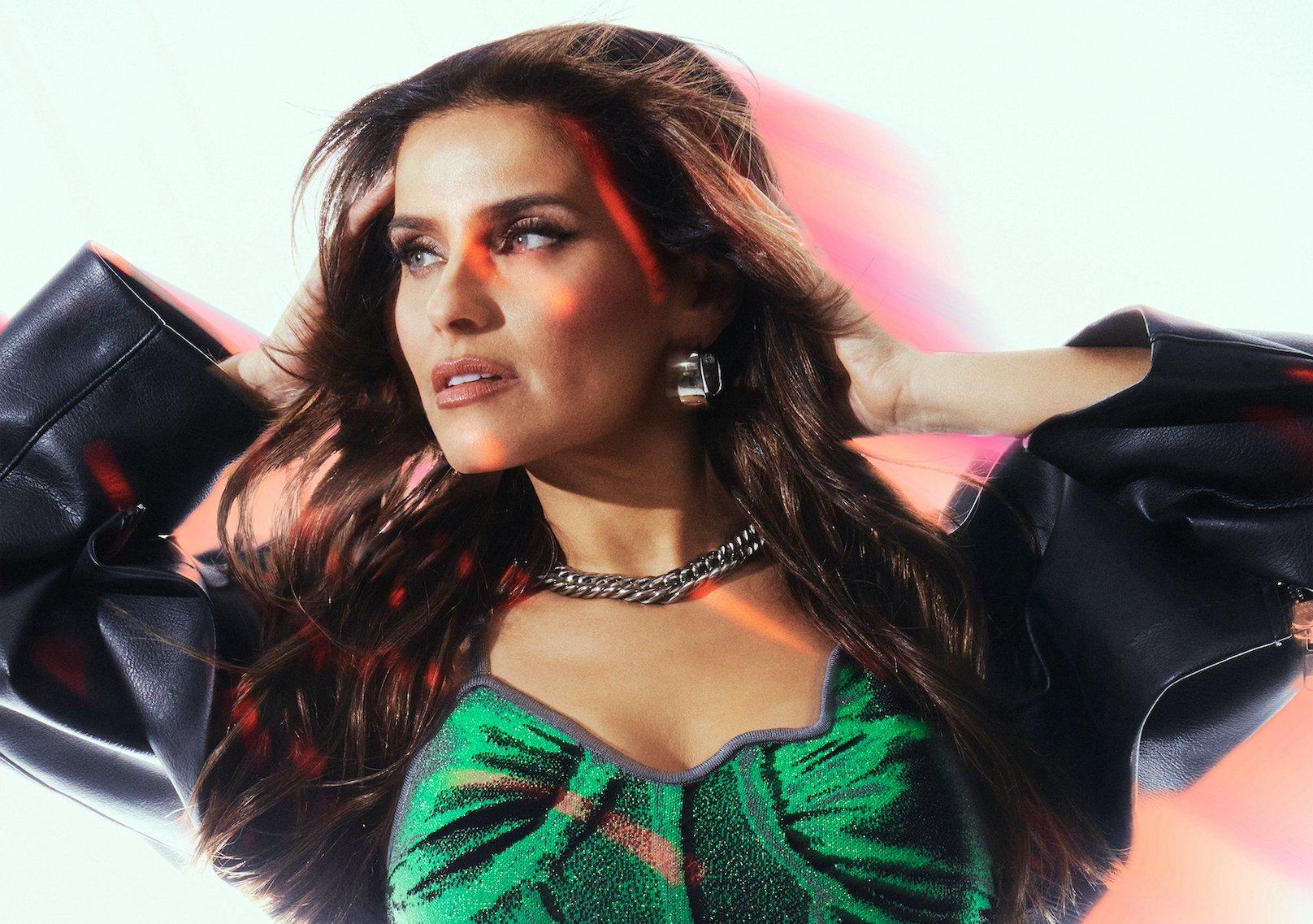
Photo: Sammy Rawal
interview
Nelly Furtado On How Remix Culture, ADHD & Gen Z Inspired Her New Album '7'
On the heels of announcing her seventh studio set, Nelly Furtado details her emotional return to the studio, and why she's having "more fun than ever" making music.
If you're a millennial, odds are you have fond memories of Nelly Furtado's music. Her early hits are 2000s playlist staples, including her GRAMMY-winning debut single, "I'm Like A Bird," and Timbaland-produced classics "Say It Right," "Maneater" and "Promiscuous."
Yet the Portuguese-Canadian pop auteur is far from a relic of Y2K nostalgia. In the seven years since her last album, 2017's The Ride, Furtado has seen her back catalog resurface in many ways, from remixes in DJ sets to viral TikToks. Not only did the millennial appetite for her music remain, but Gen Z was discovering — and loving — it. And the singer/songwriter took notice.
"I really feel like I was called back to the industry by the industry, especially DJs. I would go out and hear my songs played before arena shows of other artists, and at house parties and clubs," Furtado tells GRAMMY.com. "There was a sense of joy and celebration in it…I thought, This can only be remixed so many times, I better go make some new stuff."
Enter 7, Furtado's aptly titled seventh studio album. Due Sept. 20, 7 is the product of four years of fully immersing herself in the catharsis and connection of the studio. The Canadian songstress is confident and vulnerable across its 14 tracks, showcasing the malleability of her rich voice with a wide range of sounds that result in a fun, largely upbeat collection of songs.
The album's energy is indicative of the freedom and openness Furtado not only felt in the studio — where she crafted over 400 songs during the process — but also in today's musical climate. Furtado has been tapping into the collaborative spirit of the industry, teaming up with friends new and old for her latest material. Producer Dom Dolla helped birth Furtado's first new music since 2017 with the dance floor heater "Eat Your Man," a coy nod to her own "Maneater" that arrived last June; their partnership has also included appearances at Australia's Beyond The Valley festival in 2022, Lollapalooza and Portola Fest in 2023, and Coachella 2024. Along the way, the singer has also linked with past collaborators Timbaland and Justin Timberlake ("Keep Going Up") and Juanes ("Gala y Dalí").
Even 7's first two singles are collaborations: the sultry electronic-fused bop "Love Bites" with dance pop experts Tove Lo and SG Lewis, and the confident anthem "Corazón" with Colombian electro-pop wizards Bomba Estéreo. Along with offering a taste of the joy and sonic breadth of 7, both songs prove that Nelly Furtado isn't just back — she's having more fun than ever.
Read on to hear from the "Maneater" herself about her new album, finding sisterhood with Bomba Estéreo's Li Samuet, leaning into ADHD as a creative superpower, and why she'll never tire of singing "I'm Like A Bird."
You feel really free on your upcoming album, 7. I was curious what sounds and styles you're feeling most excited to explore and lean into now and which ones made it on the album?
That's a good question. When I was touring over the years, you always soundcheck at each venue, which might be this big, beautiful space, like a theater. I love the way the music would come back at me through the big speakers and monitors of a large live space, and it's something I never quite felt in the recording studio.
When I started recording this album four years ago, I started getting a bunch of friends in a room, setting up wedges and monitors and speakers with a bunch of microphones on amps and instruments, recording absolutely everything we're saying and doing. I started recording in Toronto and would invite my friends, and all of a sudden, I found myself spending Friday nights there. It became this very social event with lots of collaborations. I loved the way my voice sounded back at me through the speakers in real time, much like those soundchecks I remembered so fondly.
Halfway through the recording process, I started meeting producers like Dom Dolla. We had reached out to each other because we were going to perform at the same festival, Beyond The Valley in Australia, where I also met SG Lewis. I was blessed to meet these really key collaborators for me who are making great current music I had special connections with. I just felt blessed to be so open.
I grew up learning a spontaneous style of improvisational singing called Desafio from Portugal, where people freestyle on stage together. [We channeled] the spirit of spontaneous freestyling in the studio. I have songs on this album that are freestyles. There's this beat that FnZ did, and I just opened my mouth and sang something, and that's the song. I went back and changed maybe three words and re-sang the vocal. You just kind of open the portal and sing. [Laughs.] For me, this album's really about community and, always, fusion.
Can you speak to how your daughter, as well as seeing Gen Z discovering your music on TikTok, and DJs remixing your songs encouraged and inspired you to go back to the studio?
Oh, that was cool. Dom had been communicating about [his Beyond the Valley] performance because he did a special mashup of "Give it To Me" and [his song] "Take It" that we premiered there. To top that off, he wanted to do the Bicep "Glue"/"Say It Right" [mashup]. He created this whole archway for me to come out and do this dramatic, beautifully received rendition of the song. That was a magical moment I'll never forget.
Four or five years ago, my daughter came home from high school and was like, "Mom, you're trending on TikTok." I didn't know what that meant. I'm not gonna lie; it wasn't until I walked out at Beyond the Valley and saw these Gen Z kids singing all the lyrics to my songs that I really understood the power of social media and TikTok. It was real; new people had discovered me.
I just went to Stockholm and these kids were so young, singing every word of my old songs, and it blew my mind. I don't even know if they were born when the first records came out. [Laughs.]
I mean, people dressed up like Dom Dolla and I at Lollapalooza for Halloween with my same snake shirt. It was so meta and so cool. I love remix culture and nostalgia culture, and I lean into it. It's just like making a scrapbook.
Did that motivate you to want to make new music?
Oh yeah, are you kidding me?! I really feel like I was called back to the industry by the industry, especially DJs. I would go out and hear my songs played before arena shows of other artists and at house parties and clubs. I heard it in a lot of different contexts, and something clicked for me where I just wanted to have fun and party with my music. There was a sense of joy and celebration in it. People kept remixing all kinds of songs of mine from all my different albums. I thought, This can only be remixed so many times, I better go make some new stuff.
I love meeting artists online and making those connections in real time. I love the current climate of music. I think it is more fun than ever for artists, because we get to be very in the moment and we get to create moments. We get to focus on what we want to, we get to activate different things in our own way and on our own timeline. I connect with so many DJs online.
That's so my vibe; I've always been about collaboration. I feel like the industry is tailor made for artists like me right now who just want to collaborate and vibe out and make friends and have fun. I've always been in it for the music, so it's just so fun to be doing this.
7's second single, "Corazón" featuring Bomba Estéreo, is very confident and celebratory. What was it like working with them and how did that song come together?
"Corazón" started with this very special beat that T-Minus had made for me. He was such a champion of me doing this new project, and really pushed me to make sure I was putting my best foot forward with these new songs. The beat for "Corazón" was already magical, but I needed to find its stamp. [Working on the album] was like mining. You're digging until you see a glimmer, and then you chase it until you [hit] gold.
I co-produced the song and invited Bomba Estéreo to be on it. I brought them to the studio after a concert they had in Toronto. I got off a plane from recording in L.A., went straight to their gig, and embraced Li on stage. I hadn't seen her since I flew to her home on the beach in Santa Marta [Colombia] at the begging of my friend Lido Pimienta, who thought I needed to go meet Li. I'd never met her before [then]. I stayed at her home and met her family. She's an incredible woman. She's really a goddess.
We're at the studio [in Toronto], just eating chicken wings and having some tequila, and magic kind of happens. They're playing all these beautiful parts on their instruments. There, you get the fusion. It becomes something a little bit more than the song was before, and Li has her rap feature on there.
How did bringing Bomba Estéreo into the studio make the "Corazon" into something different?
I just knew it would make it more special. What's really weird is Li and I have another song that's not on this album— that will probably be on the deluxe — called "Corazónes" that we wrote in Colombia. I don't think it's a coincidence that this song is called "Corazón." I think it's some weird subconscious tick. [Laughs.] It was almost like the collaboration was meant to be more than one song.
Colombia made such a huge impression on me. I also spent time in Barranquilla because Lido was filming artwork for a project of hers; we were right in the thick of it in downtown Barranquilla. Li and I wrote a song at her treehouse jungle studio called Papaya Studios in Santa Marta. I really needed that sisterhood at that time. That trip was almost like a woman's retreat.
I just knew Bomba Estéreo needed to be on the song. I wanted [Li] to rap. On "Soy Yo" she's rapping and doing her thing. She's a really amazing rapper. She's an amazing singer and writer too; she's pretty rare. She's in her own lane.
I really connect with how Bomba Estéreo's music has a love vibration that I think is very rare. That's what sets them apart. That's why I knew they had to be a part of this song called "Corazón." They embody that idea.
Can you speak a bit more to the creative process of working on this album, as well as the emotions you were processing through it?
On this album there are some cool moments where I just let the music happen. Something clicked in me the last couple years where I realized it's really quite simple: You just have to enjoy what you're singing.
I was in the studio with Dom Dolla, producer Jim Beanz [who worked on Loose] and singer/songwriter Anjulie [Persaud] in Philly last Valentine's Day. We recorded and wrote "Eat Your Man," a track I put out with Dom last summer. Very early on when we were working on demos, Dom was like, "Why are you pronouncing every word when you sing?"
There's something to letting yourself relax into the music and just letting it be. I kind of forgot that. In the studio with Dom that day in Philly, it was a real aha moment for me. It was like, Oh man, I remember what this is like, just singing for the joy of it all.
Emotionally, I got into the studio four years ago with a bit of a broken heart. I'd been through a lot in my personal life and I was quite sad. The first day I opened my mouth, I almost felt like I was having a heart attack from the amount of emotion moving through my chest. I had been a stay-at-home mom for about three years straight — my two youngest children were born a year apart — and I didn't go to the studio at all. So that first time back was quite impactful for me.
That pain quickly turned into joy because I started spending Friday nights at the studio with my friends and collaborators. We would often jam until 7 in the morning. The studio is my happy place. I really learn so much about myself every time I make an album. It's uncanny; I have this moment before I put the album out where I'm almost sad because I have to detach from the process.
I've become overcome with emotion a lot of times making this album, hearing the mixes back and completing songs. I did purge a lot of emotions, but it's amazing how happy the album is.
I think that comes from the sense of community and really leaning on people I've met along the way. I met moms who make music during this process, like Li and Lido. I'd be coming home from the studio texting them, and they'd be coming off the stage in Holland or Paris and I'd feel so motivated. Community is such a huge part of this album. I loved welcoming that into the mix. It was really fun to make.
How did you take all of that — four years, so many emotions, over 400 songs — and narrow it down into an album? I can't even imagine.
I was diagnosed with ADHD about two years ago, and it was really an aha moment. I've had it my whole life. People always say, "Hey, Nelly, you're so spaced out. Where'd you go?" I got used to people making fun of me for spacing out and used to the procrastination. I [also] got used to the self-judgment and beating myself up about it.
So, getting diagnosed kind of changed my life. It is a superpower in the studio. I can write five songs at once. I can invite so many people. We can have two rooms, sometimes three, going at once and we can keep making stuff all night. So I leaned into the ADHD, embraced it, claimed it — and there we have it, so many songs.
Luckily, I have great people around me, like my engineer, Anthony [Yordanov], really kept me in check. He became that North Star of, "Okay, these are the songs we have. What are we working on today?" Also, my daughter Nevis [Gahunia] is one of the A&Rs on the album. She works in the music business and is very organized.
I leaned on other people to help me hone it in. I don't know how a bunch of stuff magically becomes 14 songs. It kind of happened by bringing a lot of friends in the studio for these long, fun parties just listening to stuff and everybody being like, "We like this song."
I have a lot of my favorite people on the album. And there's a lot more to come. I really feel like the deluxe [version] is going to be jammed with a bunch more stuff.
It's your seventh album and it's been seven years since your last, but is there any further meaning in naming it 7?
To be totally honest, the songs are all so different. It was the only title that made sense because it's more like a collection. Fashion collections don't really have titles, they're just called collection number 10 or 21. This is my collection seven.
And yeah, it's been seven years since my last album, and it's my seventh album. I love the simplicity [of the title]. Honestly, sometimes I feel a bit like a music librarian trapped in a pop star body. So it's really appropriate for me to put together this random collection of songs and just call it a number, like a librarian. [Laughs.] Go to the seventh section.
I want to go back to the very beginning, to "I'm Like a Bird," your GRAMMY-winning debut single. How does it feel now when you perform that song you wrote when you were 20?
I wrote it in a little room by myself before [going to] the studio. When I sing it, I love it. It's wild, I love it more every time I sing it. It feels incredible singing that song.
There are certain songs in my set that almost feel like one big fun karaoke session with the crowd. Who doesn't love that? It's fun every single time.
More Sounds From Latin America & Beyond

On 'Mirada,' Ivan Cornejo Redefines The Sound Of Sad Sierreño And Helps Fans Heal Through Music
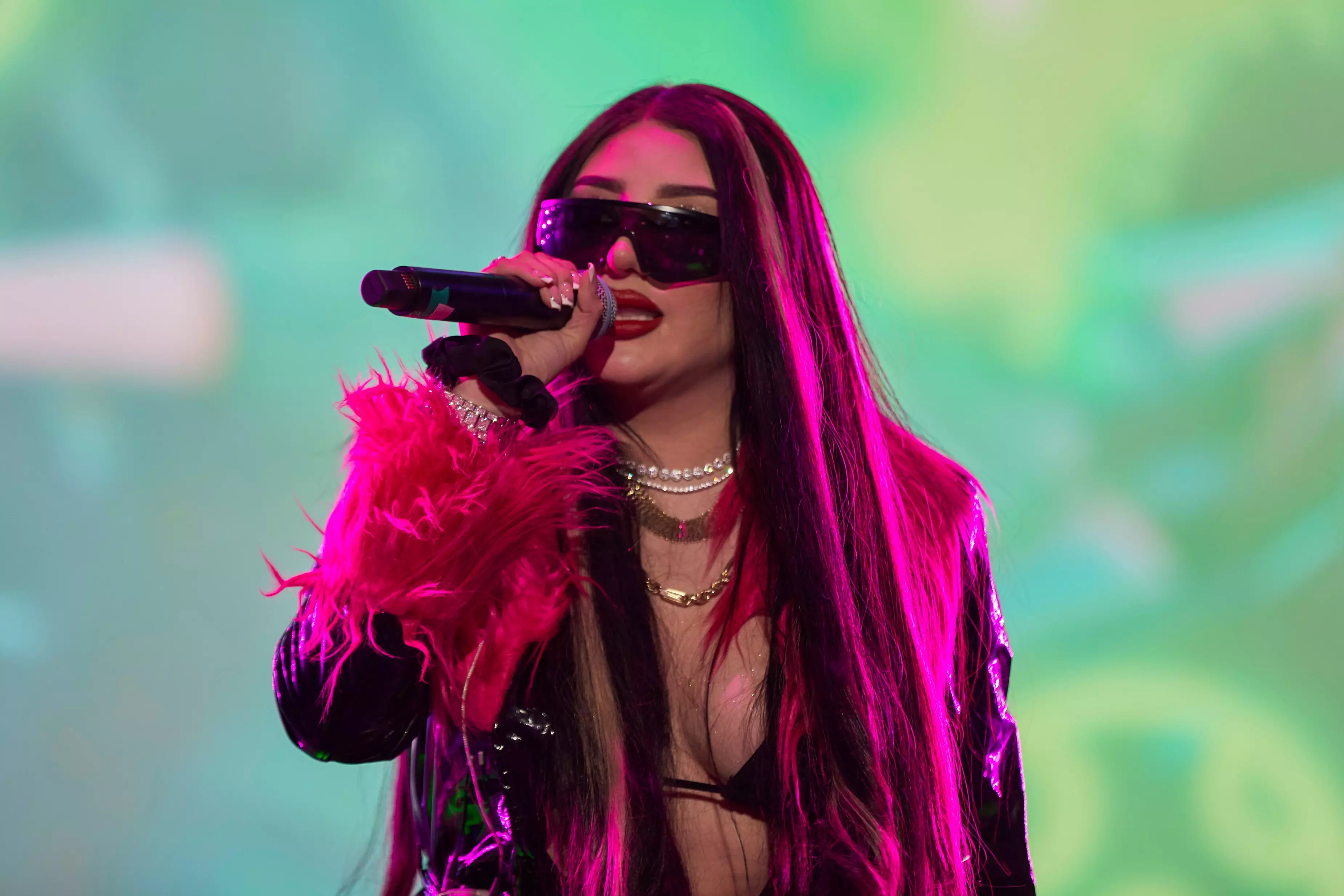
7 Artists Bringing Reggaeton Mexa To The World: El Malilla, Bellakath & More
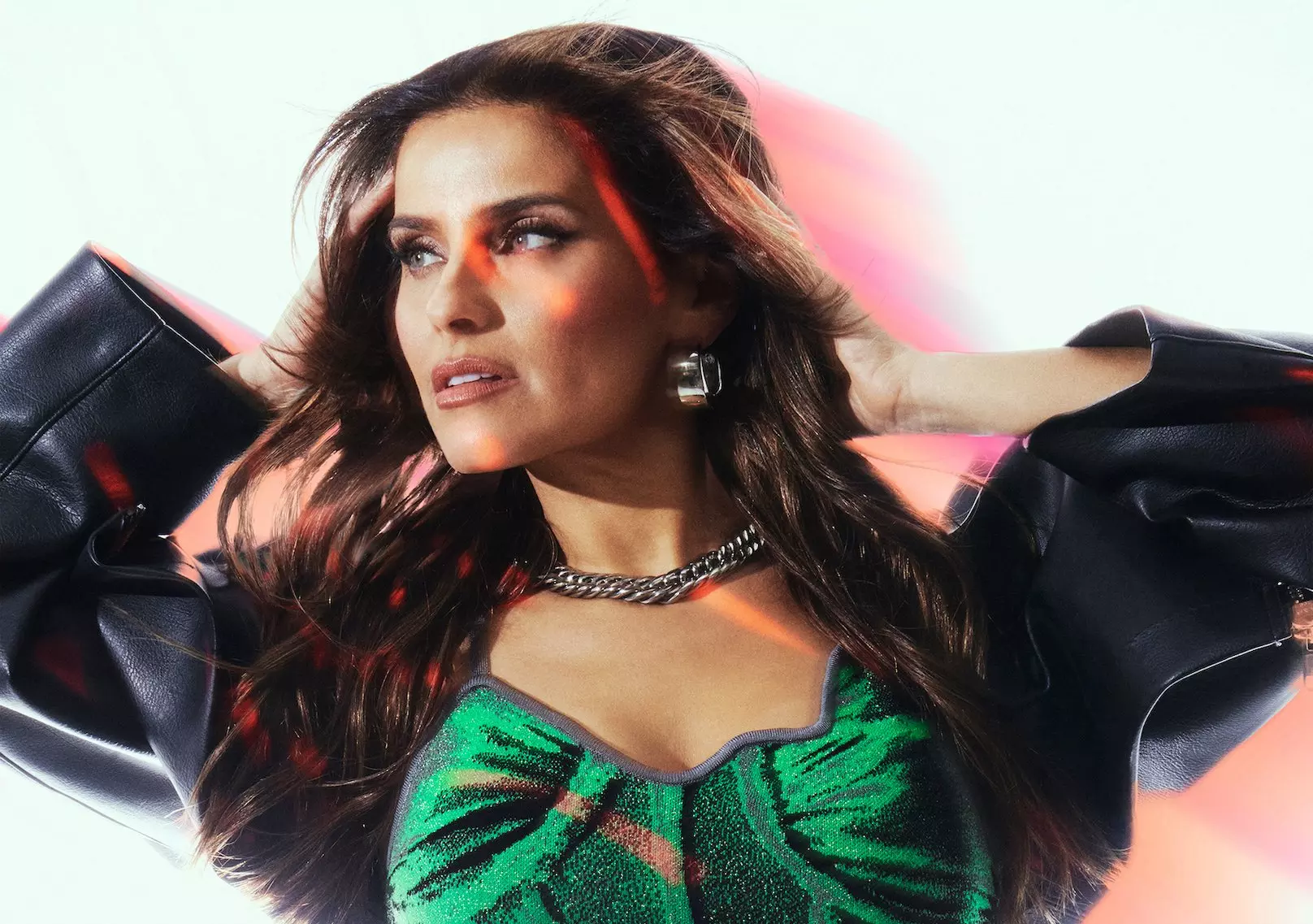
Nelly Furtado On How Remix Culture, ADHD & Gen Z Inspired Her New Album '7'
.webp)
Revisiting 'El Nervio Del Volcán' At 30: How Caifanes' Final Album Became A Classic In Latin American Rock
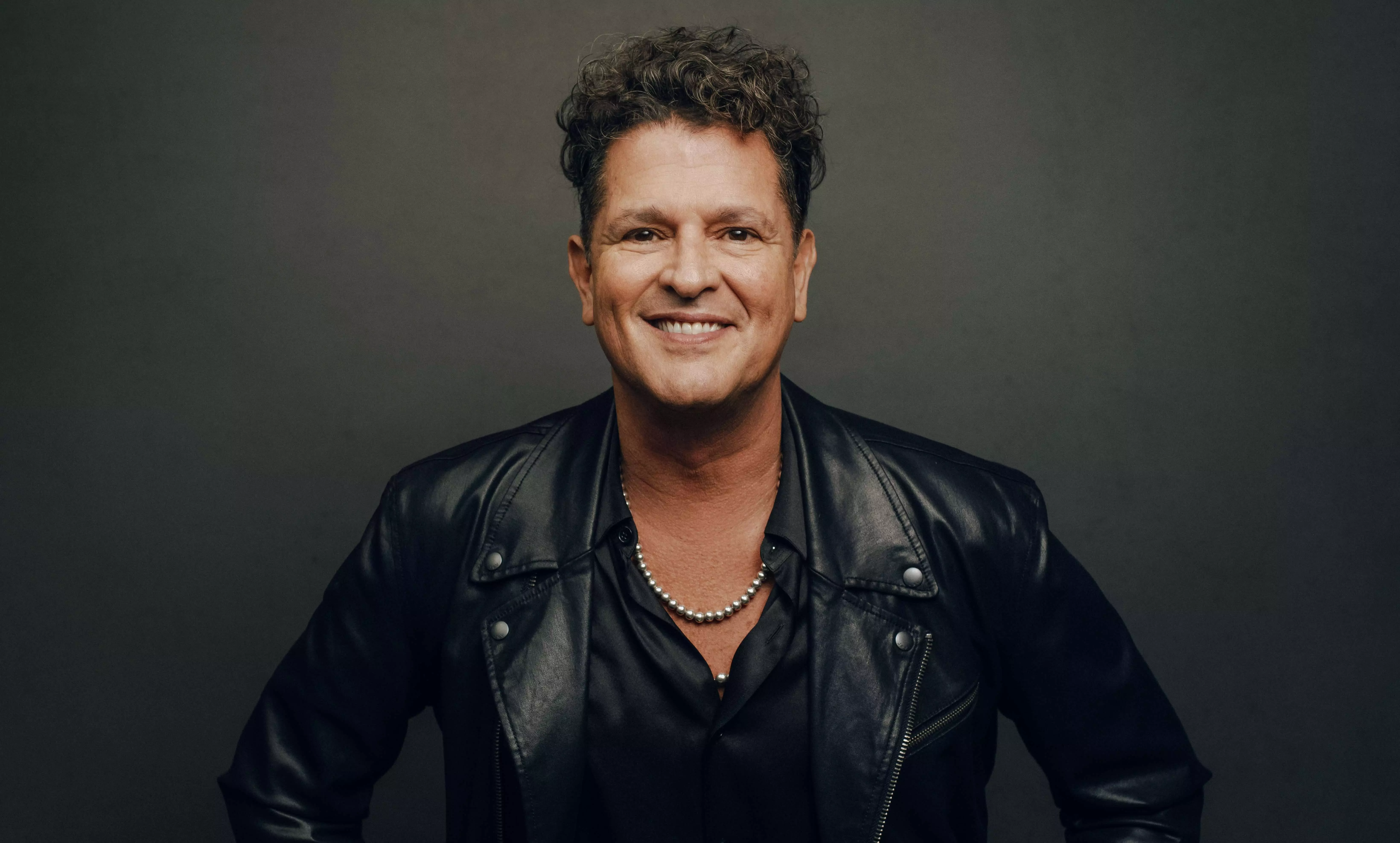
Carlos Vives Named The 2024 Latin Recording Academy Person Of The Year: What To Know About The Latin Music Icon
